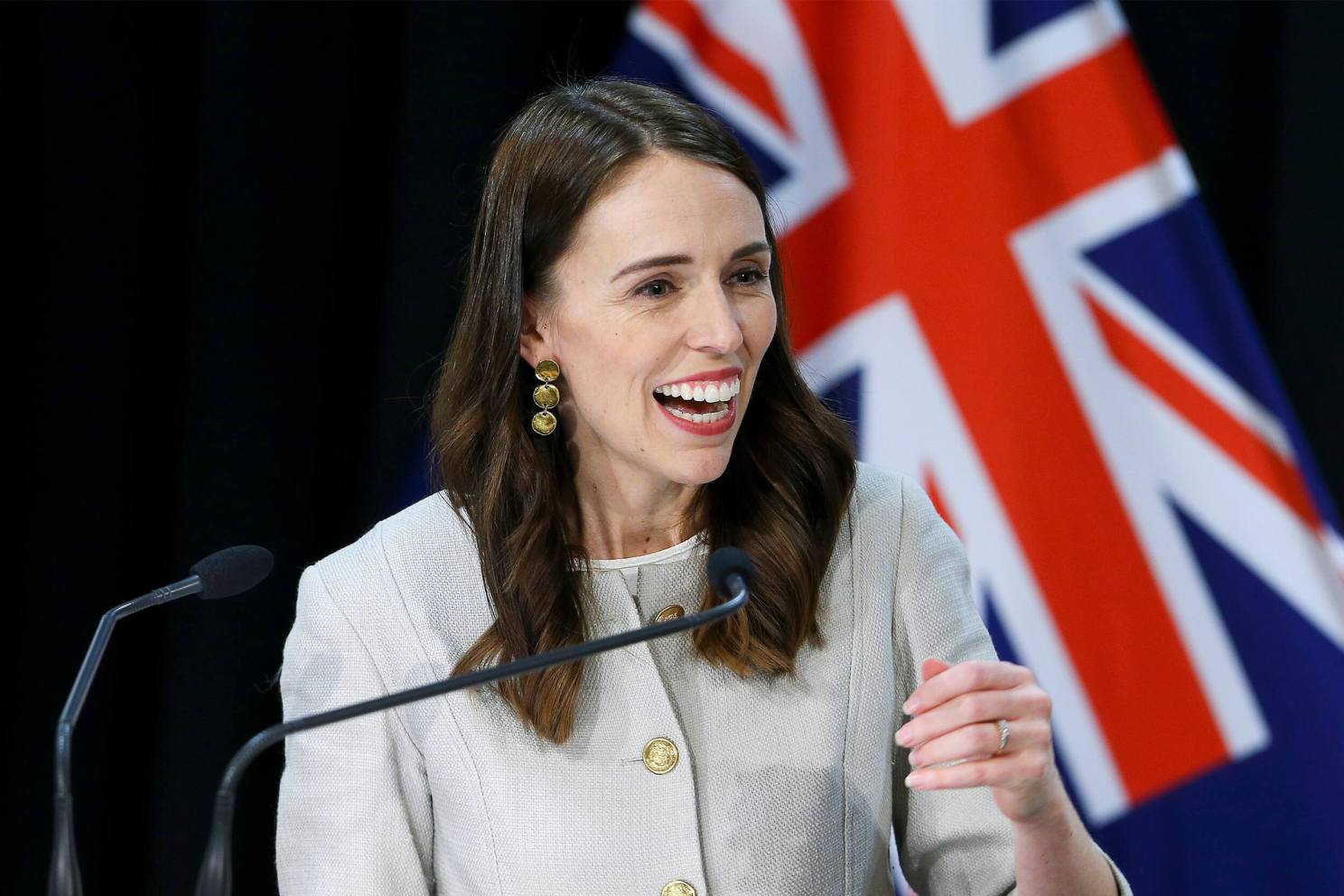Former New Zealand leader Jacinda Ardern appointed to two Kennedy School fellowships

Jacinda Ardern. Photo by Hagen Hopkins/Getty Images
Jacinda Ardern, who earned international acclaim for her leadership as New Zealand’s prime minister, has been appointed to dual fellowships at Harvard Kennedy School — as 2023 Angelopoulos Global Public Leaders Fellow and as a Hauser Leader in the School’s Center for Public Leadership. The announcement was made today by Kennedy School Dean Douglas Elmendorf. The fellowships will begin this fall.
“Jacinda Ardern showed the world strong and empathetic political leadership,” Elmendorf said. “She earned respect far beyond the shores of her country, and she will bring important insights for our students and will generate vital conversations about the public policy choices facing leaders at all levels.”
The Angelopoulos Global Public Leaders Program, established with support from Gianna Angelopoulos-Daskalaki, provides opportunities for high-profile leaders who are transitioning from public service roles to spend time in residence at Harvard Kennedy School. The Hauser Leaders Program, which launched with support from Rita and Gustave Hauser and is based in the School’s Center for Public Leadership, brings several high-profile leaders from public, private, and nonprofit organizations to campus each semester to engage with students and faculty on building skills in principled leadership.
“I am incredibly humbled to be joining Harvard University as a fellow—not only will it give me the opportunity to share my experience with others, it will give me a chance to learn,” Ardern said. “As leaders, there’s often very little time for reflection, but reflection is critical if we are to properly support the next generation of leaders.”
Ardern also is being appointed to a concurrent fellowship at the Berkman Klein Center for Internet and Society, based at Harvard Law School. As a Knight Tech Governance Leadership Fellow, she will study ways to improve content standards and platform accountability for extremist content online, and examine artificial intelligence governance and algorithmic harms.
Ardern became the world’s youngest female head of government, at age 37, when she took office in 2017 as New Zealand’s prime minister, and she took her party to a landslide victory in 2020. She stepped down in January 2023. She said she hoped she left a legacy as a leader who “can be kind but strong.”
She drew widespread praise for her leadership style and for her strong response to deadly mass killings by a white supremacist at two mosques in Christchurch in March 2019, which killed 51 people. She faced some protests against her vaccine policy during the COVID-19 pandemic, but earned broad support for the strict lockdown and public health policies that observers credited with saving tens of thousands of lives in New Zealand.
Ardern was honored with the Harvard Kennedy School Center for Public Leadership’s Gleitsman International Activist Award in 2020 and delivered the 2022 Commencement Address at Harvard University. At the time Harvard President Larry Bacow called Ardern “one of the most respected leaders on the world stage,” adding: “From climate change and gender equality to COVID-19, she has modeled compassionate leadership that has brought together empathy and science-based solutions to address the most challenging issues of our time.”





